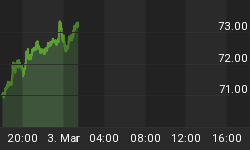Bitcoin has soared past the market caps of Morgan Stanley (NYSE:MS) and Goldman Sachs (NYSE:GS), and despite a few naysayers, Wall Street seems to be growing fonder of the cryptocurrency.
Back in September, Jamie Dimon, the head of JPMorgan (NYSE:JPM), called bitcoin a “fraud,” and even went as far as saying that its investors are ‘stupid.’ On the other end of the spectrum, Morgan Stanley’s boss, James Gorman stated that bitcoin is “certainly something more than just a fad.” He went on to say that “the concept of anonymous currency is a very interesting concept — interesting for the privacy protections it gives people, interesting because what it says to the central banking system about controlling that.”
CME will trade bitcoin futures
While not exactly Wall Street, the Chicago Mercantile Exchange (CME) recently announced that the exchange will begin bitcoin futures trading in December, the first U.S. exchange to offer trading options on the cryptocurrency. Futures are a financial contract in which a buyer agrees to purchase an asset, or a seller agrees to sell an asset at a predetermined price – futures are often used as a hedge or to speculate on future price movements of an asset.
CME’s move was met with talk of tulips, bubbles, and Ponzi schemes from the traditional traders, while bitcoiners had their own FUD; market movers would manipulate the price and involve the cryptocurrency in everything that is wrong with the stock exchange.
For now, it’s impossible to know what will happen, but it is worth a small history lesson.
Background
In 1982, CME brought futures to the S&P500, acting as a catalyst for a rally across the market lasting nearly 5 years. Futures added a new way to speculate on the market, which led to traders bidding up the price of assets across the board. Using program trading, the simultaneous buying/selling of stocks and related futures contracts, traders sought to exploit the differences in prices throughout different markets, or engage in arbitrage strategies. When volumes dwindled, and prices remained artificially elevated, these program traders initiated massive sell-offs, resulting in the 1987 stock market crash, otherwise known as Black Monday.
Following Black Monday, regulators moved in, creating circuit breakers, or trading curbs, allowing exchanges to halt the trade of specific stocks, futures, or assets to avoid huge price declines.
CME group’s involvement in bitcoin futures brings circuit breakers into cryptocurrency trading – a way to reign in some of the volatility that is synonymous with bitcoin. Though this practice may not keep investors as safe as the notion suggests, in fact, in some cases, it could amplify the very problem that it seeks to avoid.
In 2015, China experienced a market crash and added these circuit breakers – and in January 2016, they were put to the test. The circuit breakers were meant to kick in at two different levels, 5 percent loss and 7 percent loss, shutting down the markets at each position. This led to massive sell-offs as the losses approached these levels due to investors trying to shed their losses before trading was suspended. A major problem in this example was that the triggers for the shutdowns were both too low and too close together, sparking a huge wave of panic selling.
Futures in bitcoin trading, as of this writing, have relatively little precedent. When SegWit2x was announced, Bitfinex, Hitbtc and Exrate offered futures on the since botched bitcoin fork. Investors saw prices head above $2000 at one point, only to crash by nearly 90 percent when the fork was called off. While bitcoin itself is already a legitimate asset, it does bring into question the impact of Wall Street style speculation on digital assets.
Bitcoin backers are typically aware of the intense volatility associated with the cryptocurrency as price swings of 20 percent or more are not uncommon. Many argue that this is simply the result of a natural trading, unregulated and pure, and bitcoin’s relative adolescence brings a number of factors into the trading process – fear of missing out (FOMO), fear uncertainty, doubt (FUD) and the general excitement of something for a new generation of investors.
As bitcoin goes mainstream, there will undoubtedly be several schools of thought looking to spread their own gospel, but one thing is clear: there’s no stopping its progress. Investors should be aware, and enthusiasts should be patient. Some may see that bitcoin heading to the stock market makes it more legitimate, while others may suggest that it is already legitimate. For better or worse, those who aren’t interested in getting involved in the stock market still have options, while those who have wanted to get involved in bitcoin, but feared its lack of regulation will have their own options, as well.
No one can be sure how this will go, but it is likely going to be a wild ride, so hang on tight.
By Michael Kern via Crypto Insider
















